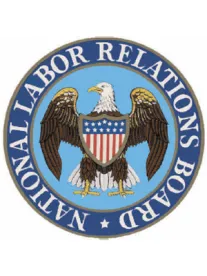On September 11, 2020, a three-member National Labor Relations Board panel unanimously ruled that a trade group representing sign language interpreters did not violate Section 8(a)(1) of the Act by removing its members’ posts on its closed Facebook page. The posts, made by individual members of the trade group, discussed the interpreters’ work conditions and supported unionization. According to the Board, because the interpreters were not the organization’s employees and thus, not covered by the Act, the trade group could lawfully remove the posts.
In Registry of Interpreters for the Deaf, Inc. and Pacific Media Workers Guild, Local 39521, Case No. 20– CA–164088, the charged party–Registry–is a national professional association of interpreters for deaf individuals. The trade association maintained an antitrust policy and a civility policy in connection with its members’ use of its private Facebook page. The antitrust policy prohibited members from using its Facebook page and other online forums as a platform to set prices, fees and other terms for their services. The civility policy restricted members from using the Facebook page for solicitation. It further required members to show “mutual respect” and gave the trade association discretion to remove posts it found to be in violation of either policy. In October 2015, the trade association removed several Facebook posts by members discussing their work conditions and expressing support for unionizing, because they violated the trade association’s policies.
An unfair labor practice charge was filed by a union, which resulted in a complaint being issued. The parties stipulated to the facts which were not in dispute.
Relying on a 2011 Board decision, New York, New York LLC, 356 NLRB 907 (2011), which this Board overruled last year in Bexar County Performing Arts Center Foundation d/b/a Tobin Center for the Performing Arts, 368 NLRB No. 46 (2019) (which we previously covered here), the ALJ held that the trade association’s members were akin to employees of a contractor who performs work on another employer’s premises and were therefore employees covered by the Act.
In reversing the ALJ, the Board found that none of trade association’s members were employees. The trade association did not control, even indirectly, the members’ wages, hours or working conditions. Nor did the trade association compensate its (approximately 16,000) members. None of the members performed work for the trade association (either on the trade association’s physical property or in its electronic forums), or for a contractor of the trade association. Further, the members did not perform work integral to trade association’s business, nor was the registry’s business as a trade association dependent upon the services of its members. The members whose posts were removed did not identify as trade association’s employees. Furthermore, only a fraction of the trade association members were employees of any employer. The Board explained that “[t]hose facts are particularly significant: if the [trade association] does not, even indirectly, control the employee members’ wages, hours, or working conditions, it cannot be found to restrict or interfere with the employee members’ rights as employees.”
The Board did not analyze whether Registry’s policies were lawful under Boeing Co., 365 NLRB No. 154 (2017), choosing instead to dismiss the charge based on the threshold issue of whether the members were statutory employees.
Takeaways
This is an interesting case where the outlines of the coverage of the NLRA. On the surface it appears individuals attempted to discuss the merits of unionization on an online forum, and the posts were removed. Had such an action been conducted by an employer removing the employee’s posts, there is little doubt such conduct would violate the Act. In this case, the forum used by the interpreters, and the charging party union, was a closed Facebook page of a trade association. It seems clear the real target of the union’s organizing efforts was the various employers employing interpreters for various tasks.
The stipulated facts contain the following, which was not cited by either the ALJ or the Board probably because it was a legal conclusion: “[T]he individual interpreter-members are not employees of [trade association] within the meaning of Section 2(3) of the Act and are not on a long-term or continuous contracted status with the [trade association]” Section 2(3) of the Act broadly defines the term “employee” to “include any employee, and shall not be limited to the employees of a particular employer. . .” Ultimately, in Board case law, employee status typically comes down to economic control of the individual. Here, the trade association’s lack of control over any of the terms and conditions of its members’ work was crucial to the Board finding that they were not employees for purposes of the Act. As such, the interpreters did not have a Section 7 right to post about unions or terms and conditions of employment. This ruling provides additional clarity in determining whether individuals who do not have an employment relationship with an employer are nevertheless covered by the Act.





 />i
/>i
